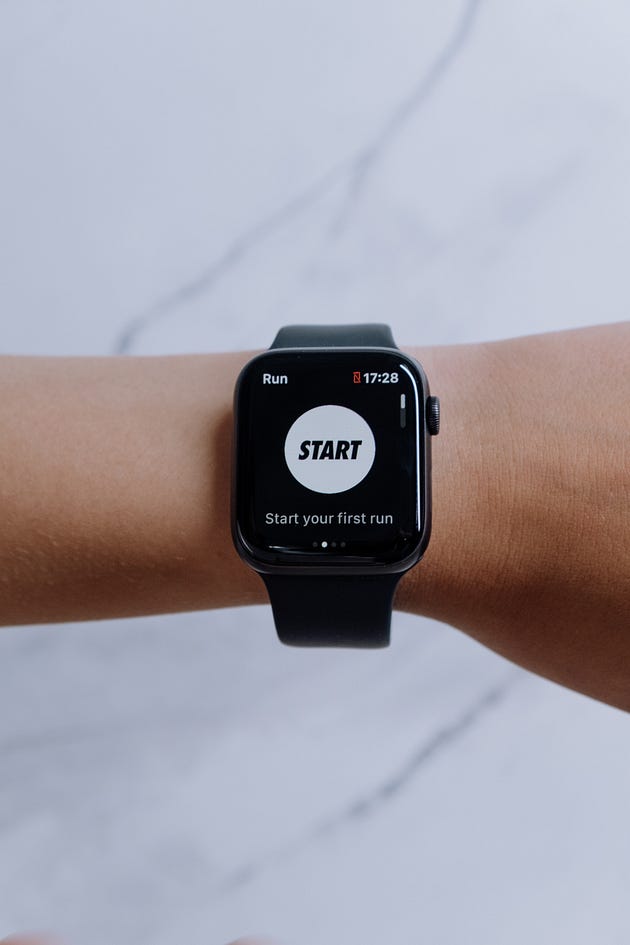AI Tools That Can Help You Monitor and Improve Your Health

Technology continues to develop to help us in all kinds of ways. I encourage you to take a closer look at your health now so you can live a long, healthy life.
Here are some of the tools that I personally use to track and monitor my health:
Muse
Taking care of your mental health is just as important as taking care of your body. If you have a hard time quieting your mind when you try to meditate, you should try the Muse Headband This lightweight headband wraps around your forehead and tracks your brain patterns using EEG hardware. There are seven calibrated sensors in total that measure your brain activity.
The Muse connects to your mobile device using Bluetooth and has an app that plays different types of nature sounds. The cool thing about Muse is that because it tracks your brain patterns, it knows how you feel when you put it on your head. It has different soundscapes for when your brain is active, neutral, or calm.
So, if you’re having a stressful day and your brain is going a mile a minute, the beach soundscape will sound like crashing waves. As your brain calms down during meditation, the waves will change to sound more like they are gently washing up onshore. The goal is to train your brain to reach a state of peaceful meditation. Over time, you will be able to have fewer moments of stress and more moments of calm.
When you are done meditating, you can get real-time feedback from the app. The Muse 2 is their latest device, and it measures your heart rate, posture, and breathing so that you can improve your meditation experience through both your mind and body.
Some people find that meditating is stressful because they’re so worried about whether or not they are doing it “right.” Having the data at your fingertips can help you know how your meditation experience is going and give you actionable feedback you can use to improve your meditation experience.
UpRight
The way we sit, stand, and walk impacts our entire body. You can eat healthily and workout as much as you want, but if you have terrible posture, you are still going to suffer from poor health consequences.
When you have good posture, your spine is aligned and balanced. When you have poor posture, your spine is out of balance, and your muscles and ligaments need to strain to make up for it. As a result, you might have back pain, neck pain, headaches, and sore muscles.
I like to use UpRight to train and track my posture. This is a small device that you place on your back using a silicone adhesive. It’s pretty tiny so that you can wear it under your shirt and nobody will notice. It pays attention to your posture and vibrates whenever you start to slouch. The vibration reminds you that you need to sit or stand up straighter.
You can connect it to the free app to track your training and see how your posture improves over time. You can also play games by trying to sit with the correct posture for a certain amount of time. Eventually, you can move from training to tracking and wear the device without feeling the vibrations.
Dario Blood Glucose Monitor
Generally, the only people who use a blood glucose monitor are those with diabetes and other disorders or diseases. So, I thought, why wait until I have a condition to measure my blood? By measuring it now, when I’m healthy, I can track it. That way, if I notice a dramatic shift, I can take action to prevent getting sick.
The Dario blood glucose monitor is a smart system that automatically records your blood glucose and gives you an analysis. It’s fast and accurate. It’s also easy to carry with you, so you can take it with you to continue taking and monitoring your blood glucose levels when you’re on vacation or business trips.
Apple Watch
It seems like everyone has some sort of fitness tracker, so any brand you use will give you similar results. I use my Apple Watch every day to track my heart rate, activity levels, and how long I stand every day. If you love data as much as I do, you’ll appreciate that the Apple watch gives you exact metrics for your workouts.
Smart Scale
I think too many people worry about their weight and nothing else when they’re trying to be healthy. They step on the scale, see a number, and decide that number alone provides enough data to tell them whether or not they are healthy.
I use a Nokia smart scale (now sold by Withings) to track more than just my weight. What I like about using a smart scale is that, in addition to telling you your weight, it tells you your fat percentage, muscle mass, heart rate, and water percentage. This is really helpful because it gives you more information than just your weight. Your weight is based on more than just how much fat you’re carrying around. If you turn fat into muscle, for example, you might weigh the same amount, or even more, but be healthier than you were before.
The scale comes with an app that automatically logs your weigh-ins so you can track your data over time. You can also record your activity and measure how your movement and weight fluctuate based on different factors.